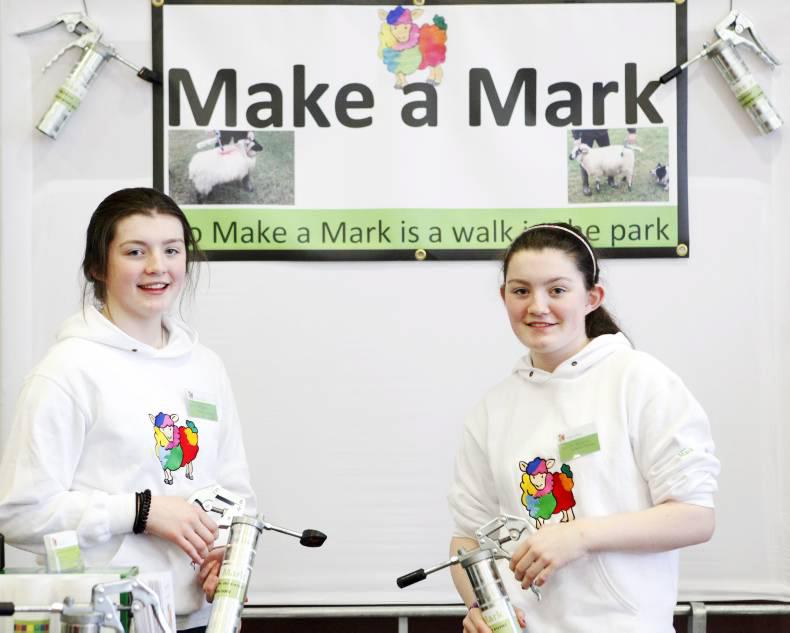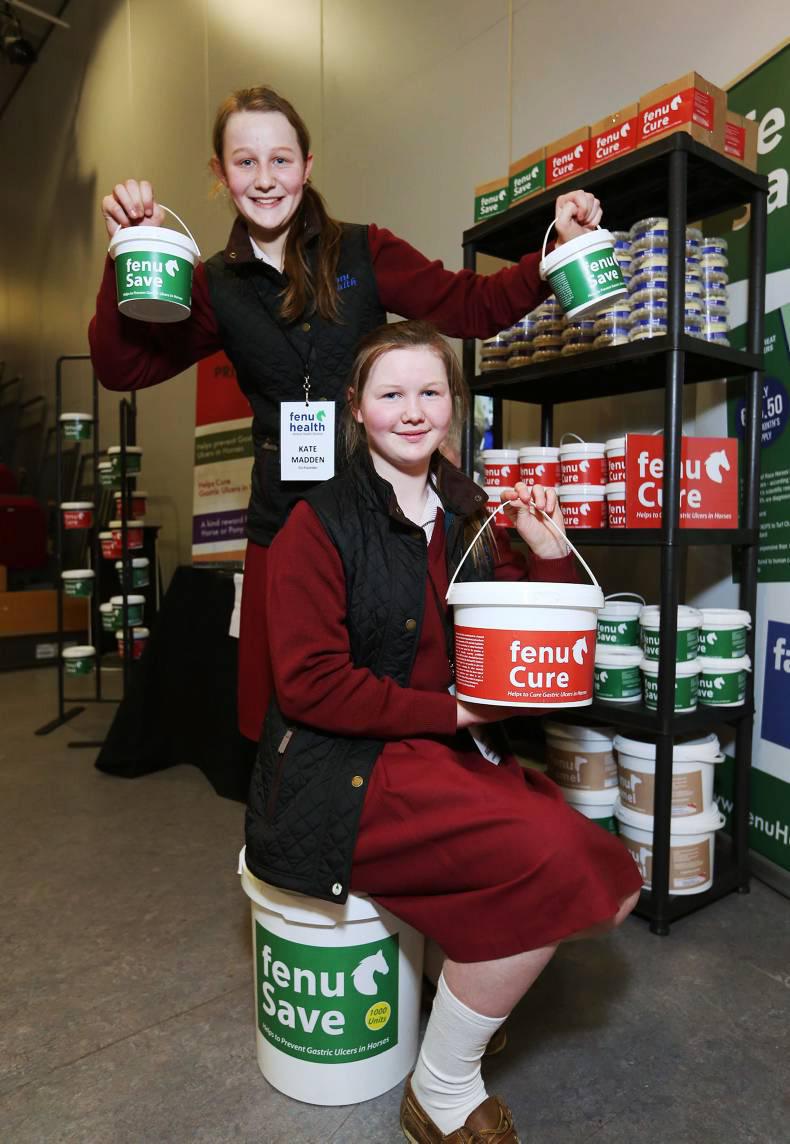Luke Byrne from Coláiste Chraoch Abhann in Kilcoole, Co Wicklow, came away with the top prize at the Student Enterprise Awards last week for his project “Headphone Helpers”. This is a silicone band that stops earphones from getting tangled, and there is a patent pending on the product.
Luke was just one of 22,000 teenagers aged 13 and upwards from 620 schools across the country, who took part in this year’s Student Enterprise Awards Programme, which is now in its 14th year. In all, 76 student enterprises (with 201 student entrepreneurs) made it through to the national final, which was held in Croke Park last week. The competition is co-ordinated by the local enterprise offices.
Agri-entries
There were ag-related entries to the competition too, including an enterprise called “Make a Mark”, which was founded by 16-year-old twin sisters Mary and Sarah Murphy, who are students in Gortnor Abbey School in Crossmolina, Co Mayo.
They are from a sheep farm and their invention, Make a Mark, is an applicator gun which applies marking fluid to a sheep’s coat to identify them.
The product has two separate application nozzles, made locally in Mayo, which allow farmers to mark the animals in two different ways.
Mary and Sarah say Make a Mark is quicker and cleaner than other methods currently used by farmers to mark sheep, such as a bucket of fluid with a brush or aerosol spray cans.
There is a patent pending on the invention while Make a Mark is on trial in Australia, as the sisters plan to target the large number of sheep farmers in New Zealand and Australia.
The girls have given presentations to farming groups such as the Mayo Blackface Group and the Irish Natural Hill Farmers Association (INHFGA) to help sell their products. The Make a Mark pack is priced at €60.
Equine entries
There were also some very interesting equine projects at the Student Enterprise Awards too.
The top prize in the junior category for first-year students on the day went to Amor from St Oliver Post Primary School in Oldcastle in Co Meath, for their modified stirrup tread for horse-riding.
FenuHealth was another equine project. It was developed by the horse-mad Madden sisters (Kate is 14 and Annie is 15) who are from Summerhill in Co Meath, and go to school in Loreto College on St Stephen’s Green. FenuHealth makes supplements not only for the horse-racing industry but for the camel-racing industry too!
The girls’ research found that 78% of racehorses suffer from gastric ulcers, and FenuHealth is a range of products that deals with this issue. FenuSave helps to prevent gastric ulcers in horses and FenuCare helps cure gastric ulcers in horses.
Based on the success of their first two ranges, the sisters also developed FenuFeast, which is a reward for horses and ponies, while FenuCamel is specifically designed for race camels.
This project came about because Annie’s horse would not eat his feed. This was especially problematic because she was competing at the time, so they decided that if they put a flavour into the horse’s feed, he might eat it.
The girls researched 153 different flavoured foods and treats and trialled 110 horses on three flavours – vanilla, caramel and fenugreek – to see which they liked the most.
In all, 70% of these horses preferred fenugreek – a spice which is widely used in Indian cookery, and also has great health benefits. So that’s what they decided to go with.
FenuHealth has been tested by Connolly’s Red Mills, which found it meets all standards for naturally occurring prohibited substances (NOPS) as determined by the FEI, The Jockey Club, The Turf Club and the Olympic Council. The sisters oversee production of their products in the UK.
The girls have already achieved sales of over 7,000 units of their product to horse trainers in the Middle East and China.
In 2015, they attended the world’s largest horse trade fair, Equitana in Germany, where they sold 1,000 units to Qatar and established links with five distributors.
On a similar track
Another horse-health company vying for a prize at the Student Enterprise Awards was Caballis Equine Ltd, which is run by Daniel Carroll from Colaiste Choilm in Tullamore, Co Offaly.
Daniel, who has competed internationally for Ireland in showjumping, saw first-hand the distress and expense various common equine illnesses, such as colic, had on horses, so he invented the CompIEAT equine feeder to imitate the way horses naturally graze.
This is to counteract the trouble horses’ digestive systems face in trying to process food that is given to them in large volumes.
Daniel’s invention trickle-feeds forage (hay) in proportion to concentrates (oats) slowly throughout the day. The feeder has been shown to reduce the risks of various common equine illnesses as well as improving the horses’ digestion.
Daniel is hoping to launch the CompIEAT equine feeder in August. Many farmers have also expressed interest in the product, as they feel it can be used to feed other livestock, such as sheep and cattle, to reduce food waste.
Growing strong
One horticulture entry to the Student Enterprise Awards was an enterprise founded by Micheál Martin (not that one!) from Patrician High School in Carrickmacross, Co Monaghan.
Recycle and Grow is a guide that shows the public how to grow, care for and maintain a plant. Using the booklet, the reader can make their own recycled newspaper pot, grow their own nasturtium plant and harvest the results.
Micheál has written all the content, designed the booklet and is currently working on getting the booklet and packaging printed to bring it to market.






SHARING OPTIONS